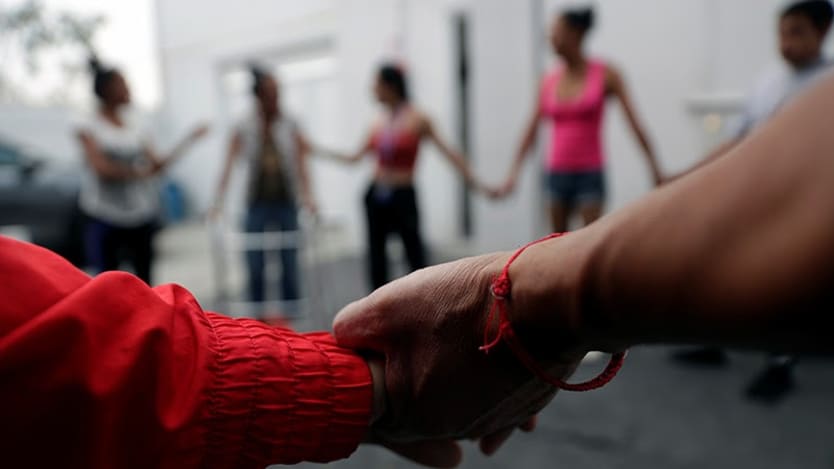
A year into the COVID-19 pandemic, we now know more about how LGBTQ young people have fared during the worst global crisis in a generation. Along with other marginalized groups, queer young people have been among the worst impacted.
Increased domestic abuse, food insecurity, a lack of access to lifesaving queer-affirming health care, and homelessness are among the perils the coronavirus crisis has exacerbated for LGBTQ youths. In the words of United Nations Secretary-General António Guterres, LGBTQ “people are experiencing heightened stigma as a result of the virus, as well as new obstacles.”
Governments and other actors must make sure their pandemic responses are truly intersectional and incorporate the needs of young people who are the most vulnerable — and yet often the least visible — including LGBTQ youths. The best way to do this is by listening to them.
Considering anecdotal evidence and the little LGBTQ-specific data that has been gathered since the start of the pandemic, it is clear that social protection systems around the globe have repeatedly and consistently failed to take into account young queer people’s unique needs. Given the lack of focus on LGBTQ youths in the development sector in normal times, it is unsurprising that data collection during the pandemic has been commissioned by, created for, and centered around cisgender and heteronormative populations.
Critical decisions are made based on exclusionary data, meaning queer needs and experiences are all too often forgotten. As a result, we now face a global suicide crisis and risk losing a generation of young queer people who have been left without the services, support, and freedoms they need to survive and thrive.
The onus is on progressive civil society organizations to amplify the voices of and pass resources to young queer people and movements.
—The current crisis facing queer youths is not limited to COVID-19, but merely exacerbated by it. Activists have long pointed to inadequate government support and services for young queer people. Governments in many countries are actively oppressing queer communities via exclusionary laws, criminalization, and police brutality. In a sense, this is a long-held crisis of cisgender heteronormativity, which erases and punishes those who do not fit the mold.
How, then, do we then go about identifying solutions to such deeply ingrained problems?
First, we need to engage in meaningful dialogues with LGBTQ young people themselves to better understand their experiences and challenges.
We must ask: Where do they get their basic needs fulfilled? Is it at home? Is it through local community or faith-based organizations? What kind of identification documents do they possess that enable access to lifesaving health care and employment or that prevent this? If they feel unable to go to their local government clinic, where are they getting their needs met? Does state intervention help or hurt the work of local organizations led and supported by queer communities? Does data collection impede their safety in the form of surveillance?
Once we build a clearer picture of what life looks like for queer youths in different national and regional contexts, we can start to ask questions that might illuminate solutions.
What can we do to consolidate and maximize existing social infrastructure? For instance, in places where it is still unsafe to reopen schools, how can learning spaces temporarily double as safe spaces from violence and also for food, mental health, and counseling services? How do we go about localizing relief programs, putting power into the hands of young queer communities themselves and doing so without compromising their safety?
COVID-19 is not an 'excuse' for human rights violations, UN human rights chief says
The pandemic is worsening preexisting human rights violations, Michelle Bachelet said in an interview with Devex, as she also called for more engagement from the U.S.
We must also ask ourselves which problems COVID-19 has exposed and exacerbated. Social and economic inequities have been amplified, leaving queer young people and other marginalized groups at heightened risk of poverty, exploitation, and abuse. The path ahead needs to involve a renewed social contract that puts power into the hands of these people, is funded by public money, and holds the executors of this contract accountable to all members of society.
Young LGBTQ people are calling for universal, inclusive, and queer-responsive medical systems with a focus on queer-affirming health care. They are calling for public education systems that include comprehensive sexuality education, trauma-responsive and inclusive mental health support, and accessible legal systems. This is in addition to addressing all other social determinants of health, such as safe and dignified housing, employment support, and food security, among others.
The onus is on progressive civil society organizations to amplify the voices of and pass resources to young queer people and movements. They can then advise on, design, and implement programs and initiatives that could maybe, just maybe, start to tackle the myriad issues facing LGBTQ youths. Civil society must let queer young people lead the way in redefining what success should look like.









